
Midtown Blossom 2026
Kim BergströmEach spring, Tokyo Midtown marks the arrival of cherry blossom season with Midtown Blossom, a seasonal event that blends sakura viewing, art, and open-air dining in the heart of Roppongi.

Known as a city within a city, Tokyo Midtown is a collection of shops, restaurants, museums, nature, apartments, offices, and a luxury hotel. The high-end, artsy complex is steps away from Tokyo’s lively and entertainment-driven Roppongi district.
Standing like a beacon of refinement in the heart of the miniature city is Midtown Tower, one of Tokyo’s tallest buildings at 248 meters tall. Behind the towering building is an expanse of greenery composed of the Midtown Garden and Hinokicho Park, and alongside it is the Galleria, which is home to high-end stores and the Suntory Art Museum. The sophisticated shopping area attracts visitors annually with its diverse entertainment and shopping offerings.
<p>Midtown Tower, located centrally in Tokyo Midtown, houses the famous and luxurious Ritz Carlton Tokyo on its top floors. The hotel takes advantage of its prized location by filling its facility with floor to ceiling windows that perfectly frame the Tokyo skyline and, on clear days, offer surreal views of Mount Fuji. To witness the phenomenal views book a room or dine at one of the hotel’s high-end restaurants. Enjoy fine dining with Japanese, French, or café cuisine, or immerse yourself in the area’s nightlife with a cocktail in hand at The Bar as you gaze out at the glittering cityscape.<p> <p>Midtown Tower also includes a clinic, an elegant conference hall, and Tokyo Midtown Design Hub, which is a facility that holds exhibitions, seminars, workshops, and presentations to connect people and offer new perspectives through design.<p>
<p>Galleria, located directly beside Midtown Tower, is a multi-story building composed of shops, restaurants, and the Suntory Art Museum. Shop to your heart’s content, and peruse high-end stores that sell everything a fashionista could ask for, from clothing to cosmetics to perfume to watches to shoes to handbags. Aside from fashion, Galleria also includes stores that sell kitchenware, furniture, and interior decorations. Stop by Hashi Choh to purchase a pair of exceptionally crafted chopsticks for a cultural memento of the area. After browsing through all the stores, you can rest your feet at one of the spas onsite.<p> <p>As you explore the complex, replenish your energy at one of the many quality restaurants serving French, Italian, Japanese, Indian, Chinese, Mexican, and American cuisines!<p>
For art lovers, a trip to Galleria would be incomplete without visiting the Suntory Art Museum. First opened in 1961 and relocated to Tokyo Midtown in 2007, Suntory Art Museum is a celebration of Japanese art. The building, which was designed by famed architect Kengo Kuma, displays exhibits of Japanese paintings, ceramics, lacquerware, glassware, dying, and weaving. The museum also offers a cultural experience in its Gencho-an tea room where you can sample a cup of exquisite tea.
Midtown Garden is located behind and to the side of Midtown Tower and connects to Hinokicho Park. The combination of these parks create a lovely half perimeter of nature around the highly commercialized area and is a perfect place to unwind after a long day. Midtown Garden is home to about 140 trees, including cherry blossoms that bloom beautifully in the springtime. Regardless of the time of year, the park is bursting with seasonal flowers. Take a leisurely walk and enjoy the expertly crafted landscape and waterscape, which incorporate Asian and Western garden elements to reflect the cultural diversity of the area.
Also located in Midtown Garden is the popular 21_21 Design Sight, which is a museum dedicated to expanding and nurturing visitors’ understanding and interest in design. The venue hosts numerous design-related exhibitions every year that are suitable for guests of all ages. Stop by to gain a new perspective on everyday life!
Hinokicho Park is located beside Midtown Garden. This historic park was once the garden of the Azabu villa, which was the residence of the lord of the Hagi clan during the Edo period. The park still retains its old-time feel and is rich in traditional Japanese charm and greenery. The area is especially popular for its abundance of cypress trees. Lounge by the park’s pond and immerse yourself in the tranquil atmosphere.
Tokyo Midtown is directly connected to Roppongi Station. Visitors can either travel via the Toei Oedo Line to Roppongi Station’s Exit 8, which is an underground platform linked to the complex or take the Metro Hibiya Line to Roppongi Station, where they can walk along an underground passage to Tokyo Midtown. The area is also about a 4-minute walk from Nogizaka Station on the Tokyo Metro Chiyoda Line and a 10-minute walk from Roppongi-itchome Station on the Tokyo Metro Namboku Line.

Each spring, Tokyo Midtown marks the arrival of cherry blossom season with Midtown Blossom, a seasonal event that blends sakura viewing, art, and open-air dining in the heart of Roppongi.

Like Roppongi Hills, Tokyo Midtown is another very famous urban center that includes a residential section, business offices, a huge shopping mall, a luxury hotel and other leisure areas.


There are many cafes and bakeries in Tokyo Midtown and around Roppongi, but the pastries and bread at Maison Kayser are a standout.
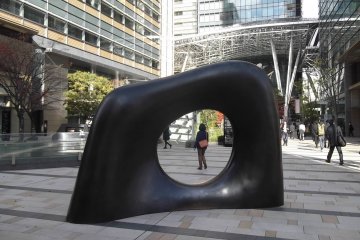
In Tokyo's bustling Roppongi district, Tokyo Midtown is an upmarket complex of shops, restaurants and art and design museums.

Starlight Garden in Tokyo Midtown, a sea of 280,000 blue LED lights delivers an awe-inspiring and beautiful Christmas light show.
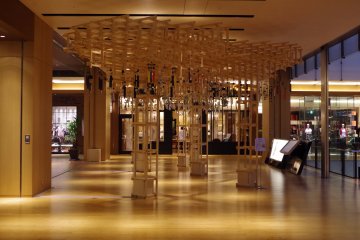
A summer special exhibition in Galleria of Tokyo Midtown shows the collection of wind chimes made in Japan.
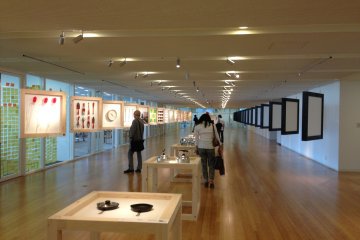
At the Tokyo Midtown Design Hub, it is—as the name already suggests—all about design. It wants to connect "people," "business" and "knowledge" through design and therefore hosts exhibitions, seminars and publications with a high level of interaction. In October the Design Hub was hosting an exhibition called Long Life Design 2013 where I was overwhelmed by a selection of incredibly well designed every day products, products we use everyday and which make our lives easier. If you are interested in design, make sure to check out their English website for current activities.

Fujifilm Square in Tokyo Midtown has free galleries, a museum, and a chance to try out cameras.
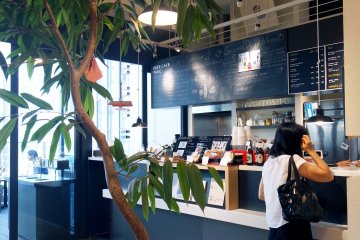
Idée Shop and Cafe are hidden gems worth checking out in the Galleria at Tokyo Midtown. Idée offers fresh and chic interior designs while Idée Café Parc, located in the back of the store, offers coffee, tea, and snacks with outdoor patio seating and great views.
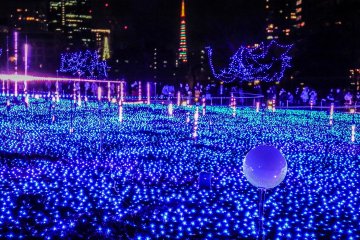
Experience a taste of the future with Roppongi Midtown`s futuristic Illumination where space age science fiction comes to Tokyo.

Take a cookery class in Tokyo's Midtown and find out how to make sushi and other Japanese dishes to impress your friends back home.

Held in autumn every year, Tokyo Midtown Design Touch is an event showcasing international design in a range of different forms and media.
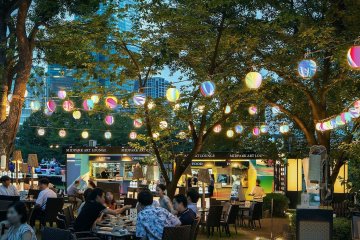
From mid-July until mid-September, the Midtown Art Palette event brings a wide range of interactive art activities to the Roppongi area.
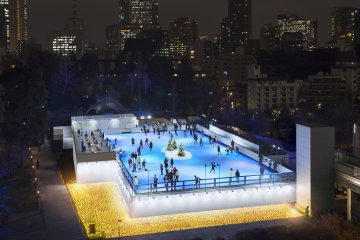
A number of ice skating rinks open in Japan over the colder months, and one of the biggest in Tokyo is located at the Tokyo Midtown complex. The rink here has been in operation for 13 years now, and it's seen by many as one of the city's best winter traditions.

Tokyo Midtown Lights ceremoniously unravel in champagne colors, which gives the appearance of luxury, romance, and warmth. The theme for this year is "vivid".

Tokyo's SEE LV exhibition showcases ready-to-wear items from the luxury fashion house throughout the decades, examples of their most iconic bags, and even an interactive exhibition room where you can explore the famous LV monograms in a digital art format.

From late April to early May, Tokyo Midtown invites visitors to relax and celebrate the arrival of spring at the MIDTOWN OPEN THE PARK event. Set against the backdrop of Midtown’s expansive green lawn, this annual event offers a refreshing escape in the heart of the city.

Each spring, Tokyo Midtown marks the arrival of cherry blossom season with Midtown Blossom, a seasonal event that blends sakura viewing, art, and open-air dining in the heart of Roppongi.
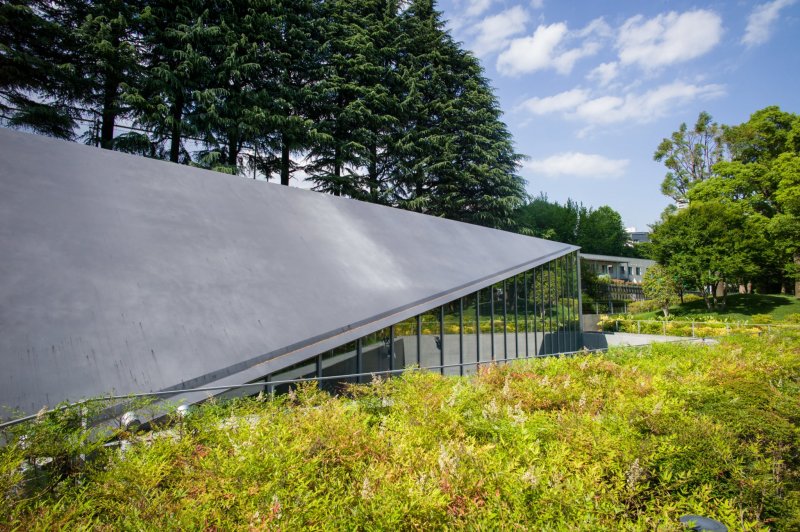
21_21 DESIGN SIGHT is a museum in Roppongi in Minato, Tokyo, which opened in 2007. The design museum was designed by architect Tadao Ando and fashion designer Issey Miyake. The building is on the e...
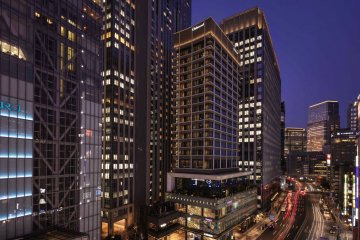
Oakwood Premier Tokyo comes from a brand of standout luxury hotel & service apartments right at the heart of the Tokyo metropolis. It is located in the business hub of Marunouchi with JR Tokyo Station in close proximity. This will allow guests and travelers to easily access the city's extensive transport network and visit various landmarks such as Imperial Palace, Tsukiji Fish Market, Ginza and Shopping District. Boasting 123 luxurious apartments on the upper floors of a multi-serviced complex, each room offers a magnificent view of the city, not to mention all furnished and a fully-equipped kitchen set which is rarely seen in your everyday service apartment. Without doubt, these spacious tranquil retreats are curated to give you the amenities and services of a luxury hotel and a feeling of home. They are good options for both business executives and leisure travelers from one night of a short-stay to a few weeks/months of mid-to-long-term stay.
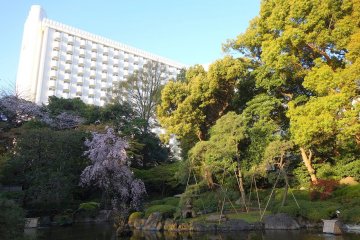
Just minutes from Shinagawa Station, the Grand Prince Hotel New Takanawa is surrounded by lush greenery in the Takanawa area, with rooms offering balcony views of the nearby gardens and the surrounding Tokyo cityscape. This urban resort features convention facilities like the Hiten banquet hall, the international Convention Center Pamir, as well as a wide variety of Japanese, Chinese and Western restaurants.
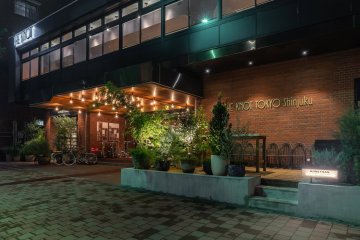
Located right next to Shinjuku Chuo Park, THE KNOT TOKYO Shinjuku is a modern hotel with an exceptional design and easy access to the nearby Shinjuku train station and the Meiji Shrine. The 14-story hotel building was renovated and reopened in August 2018 as THE KNOT TOKYO Shinjuku . The western-style rooms offer a park view on the top floor as well as a newly opened terrace suite. The spacious atrium design offers a relaxed atmosphere and connects the restaurant, bar, lounge and lobby with one another. One of the highlights of THE KNOT is the delicious dishes. There are six areas in which food and drinks are offered. From the grill area to high-quality black tea and fresh bread, everything is on offer.

If you're a fan of Quentin Tarantino’s Kill Bill, there's one Tokyo restaurant that absolutely deserves a spot on your bucket list. While you may not know it by its real name, chances are you've seen it on screen—it’s the unforgettable setting for the iconic, over-the-top showdown between The Bride and the Crazy 88. Known affectionately by fans as “The Kill Bill Restaurant,” this venue offers more than just cinematic nostalgia—it's a vibrant and unique dining experience in its own right. Located in Tokyo’s upscale Nishi-Azabu district, this classic-style izakaya bar is where fiction meets flavor. Though the fake blood and samurai swords have long been cleaned away, the spirit of the film lives on in the architecture and atmosphere. Stepping inside feels like walking onto the set: a grand, high-ceilinged hall with a central open-plan dining space, surrounded by a mezzanine-level balcony—instantly recognizable to anyone who’s watched the movie. But don’t mistake it for just a movie-themed attraction. The Kill Bill restaurant is a serious culinary destination. It offers a wide variety of traditional Japanese dishes, from sashimi and grilled skewers to noodle dishes and seasonal specialties. The menu also boasts creative fusion items like avocado and camembert tempura, which nods to the restaurant’s global popularity and mindset. And for international travelers with specific dietary needs, the restaurant provides vegan and halal-friendly menus (with at least three days’ notice). What makes this spot truly special is its ability to deliver a top-tier gourmet experience while doubling as a pop culture pilgrimage. You can sip sake where Uma Thurman once sliced through waves of enemies—minus the chaos, of course. Whether you’re a die-hard Tarantino fan, a foodie on the hunt for authentic Japanese flavors, or simply someone looking for a unique night out in Tokyo, this restaurant checks every box. Just one tip: Enjoy the drinks and dishes, but leave the swordplay to the professionals. Note: As you’d expect, Gonpachi is a popular restaurant. Same-day reservations are possible, but ideally you’ll want to reserve your table at least two days ahead of your visit, and even earlier if you’re planning to visit at the weekend.

B-Flat Commune is an open-air hangout in Omotesandō featuring a variety of stalls and food trucks offering unique drinks, clothing, and bites to eat. Its relaxed vibe and plenty of seating make it an ideal spot for casual meetups and spending time with friends. It's a creative place where people can gather to eat a the open-air dining space or purchase fashion, antiques, product goods and other lifestyle items. Events are sometimes hosted at this community space, and operating stores may change from month to month.

Mame Shiba Cafe offers a unique experience where you can interact with Shiba dogs while enjoying your favorite drinks. You cannot make reservations in advance through phone or online, so it is best to book early in the morning at a store. The cafe requires customers to make a reservation in-store, present their receipt at the reserved time, and then enter the cafe.
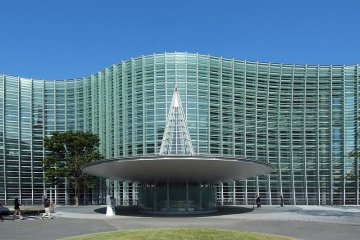
The National Art Center (NACT) is a unique and innovative art exhibition facility in Roppongi, Tokyo. It opened in 2007 and is located on a site previously used by a research facility at the University of Tokyo. The structure is one of the architect's last works Kisho Kurokawa. Instead of maintaining a permanent collection, the NACT uses its 14,000 square meter exhibition space, one of the largest in Japan, and focuses on serving as a venue for various art exhibitions. In addition, the public relations work is supported by various educational programs. The art library, which can also be found there, serves to collect and disseminate information about art.
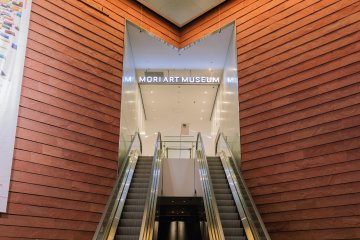
The Mori Art Museum in Roppongi has set itself the goal of being a place of fun, stimulation and discussion - a place where what is important in culture and society is openly discussed. Not only through the exhibitions that are shown there, but also through a wide range of educational programs. It appeals to an audience that ranges from young schoolchildren to college students and seniors, from people who live in regional society to all over the world. The operators of the museum also consider it their task to create a platform for the artists from the region. Since opening, the museum has received high critical acclaim for its wide variety of unique exhibitions, many of which are centered on cosmopolitan themes.

Roppongi Hills is one of the largest real estate complexes in Japan, based in Roppongi, Minato-ku. The building complex designed by Minoru Mori and opened in 2003 consists of offices, stylish apartments, shops, restaurants, cinemas, a museum, an art gallery, a hotel, a TV studio, an outdoor amphitheater and a few parks, the office floors house leading companies in the IT and financial sectors, making Roppongi Hills a symbol of the Japanese IT industry. In the center of Roppongi Hills is the 238-meter-high Mori Tower, one of the tallest buildings in the city. On the top floors there is an observation deck that offers a beautiful view of Tokyo and a modern art museum focusing on new artistic ideas from around the world. There are numerous shopping opportunities throughout the complex and there is also a large Toho Cinemas cinema showing both Japanese and international films.